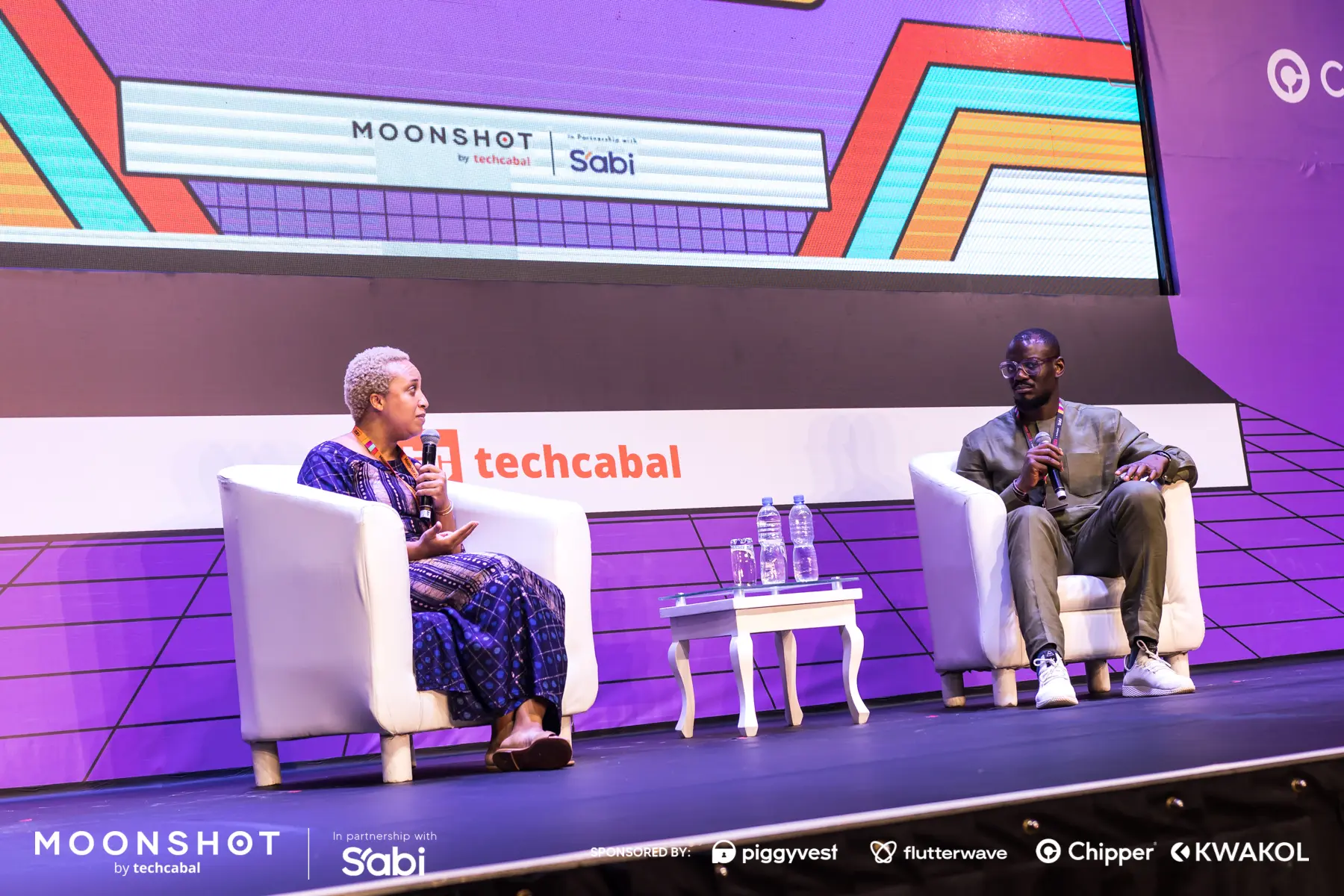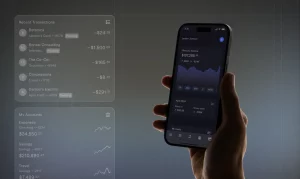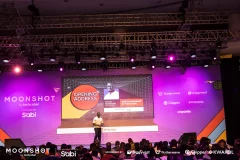At TechCabal’s flagship conference, Moonshot, Anu Adedoyin Adasolum, co-founder and CEO of Sabi, a Nigerian B2B platform, spoke to Big Cabal Media CEO Tomiwa Aladekomo about how Sabi works.
“Sabi [in Nigerian speak] means to know what to do,” Anu Adedoyin Adasolum, CEO of Nigerian B2B platform Sabi, explained to the teeming audience at the Moonshot by TechCabal conference. The three-year-old startup has been helping African businesses solve the problems of Africa’s fragmented commerce sector.
“We make money by helping people make money,” Adasolum said. In Nigeria, and many African countries, commerce is challenging due to inadequate infrastructure, and access-related problems. This slows the growth of businesses. Sabi, through its online tools and in-person services, fills the gaps in the fractured supply and demand chain for small and large enterprises on the continent.
For example, if a farmer has a lot of groundnut produce, Sabi can connect her to different off-takers so that she doesn’t have to be worried about demand. Through its online tools or in-person services, Sabi helps businesses find demand, access credit or working capital, and manage inventory and supply, from sourcing goods to safely transporting them to off-takers.
Currently, Sabi’s biggest customer base is in agriculture, but Sabi extends its services to small, medium, and large businesses in sectors like fast-moving consumer goods (FMCG), electronics and pharmaceuticals.
Smaller merchants can access credit, order products, and manage inventory and sales through Sabi’s app. Big producers of commodities in the agriculture, minerals, or chemicals sector can use any of Sabi’s initiatives such as Technology Rails for African Commodities Exchange (TRACE) to close commercial agreements, facilitate exports, imports and more.
Larger-sized businesses, who are typically wholesalers or distributors, would typically work with Sabi through any of its relationship managers.
De-risking the process
Sabi works with about 200,000 businesses and has to manage risks so it conducts customer assessments. “We have a very large network, so it is very unlikely that we do not know you or anyone that you work with,” Adasolum told Aladekomo.
“We will use that information from our network to understand your history and determine if you are reliable or not.”
Once Sabi confirms the reliability of a client, it leverages its network and partnerships to meet the business’s needs. For example, if a client needs capital to fulfill a ₦200 million ($255,901) purchase order from a reputable buyer, and they have 100 farmers supplying the products, Sabi can connect you with a finance partner.
“We vouch for your credibility and ensure the transaction’s legitimacy,” Adasolum said. “We also manage the logistics, from paying the farmers to overseeing the product’s transport and delivery to the buyer.”
Adasolum also revealed that Sabi is currently exploring how artificial intelligence (AI) can streamline its processes. While some AI applications might align with the data products that Sabi offers at an enterprise level, the team is gradually developing ideas for how AI can be integrated into the business. Adasolum anticipates that, in the coming year, parts of Sabi’s tech stack will be replaced by AI solutions as they continue to innovate.
If you would like to watch the full conversation with Sabi’s CEO, head over to our YouTube channel!





















